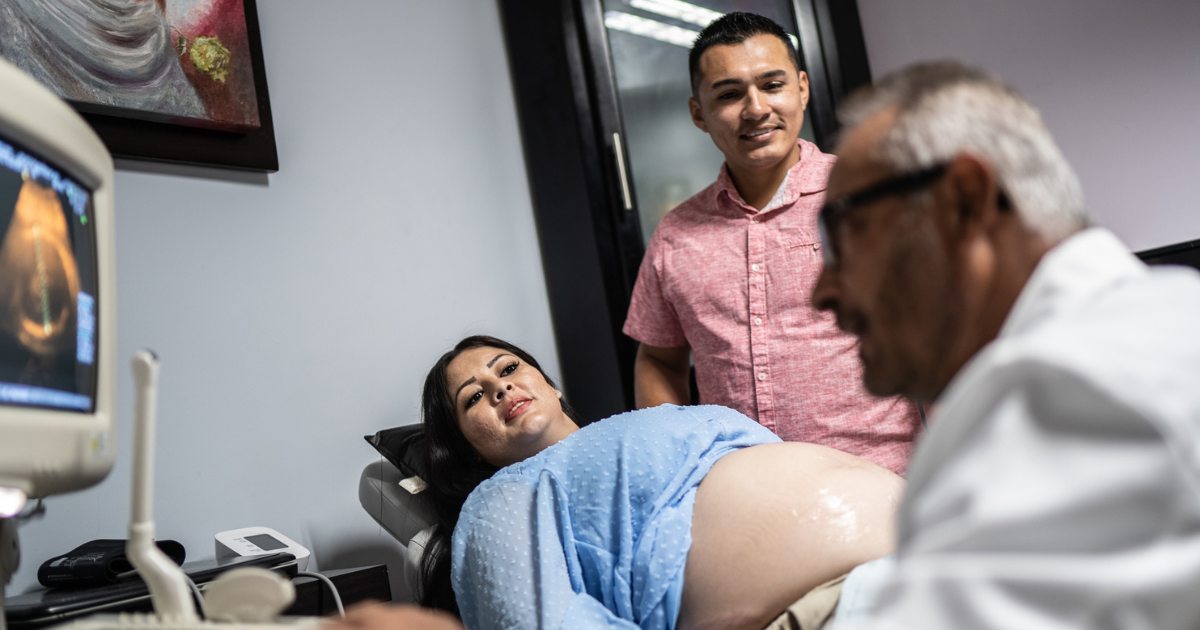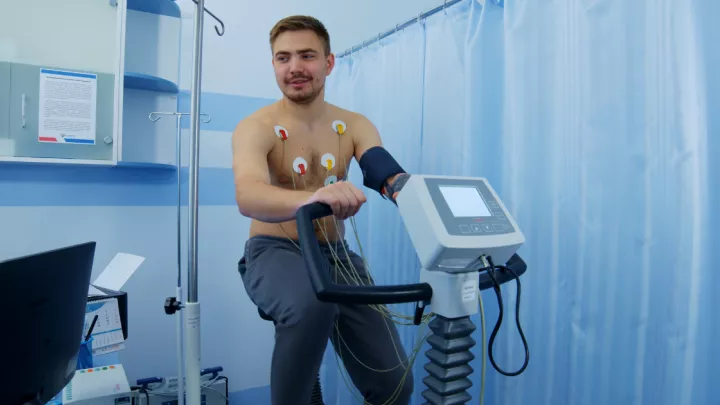What is a fetal echocardiogram, and who should get one?

A fetal echocardiogram is a test that allows your doctor to view the structures of your baby’s developing heart. Like an ultrasound, it uses sound waves to help detect heart defects in your unborn baby that may affect the function of the heart.
Typically, there’s not a lot that can be done during pregnancy for a congenital heart defect found during pregnancy, however, early detection is important for several reasons:
- Helps health care providers make the best plans for delivery and prepare for any potential problems during or immediately after birth.
- Allows health care providers to follow the baby’s growth and overall well-being more closely during pregnancy.
- Health care providers can schedule an early delivery if they feel it is needed.
- Health care providers can make plans for the baby to be transferred to a children’s hospital immediately after birth if they feel it necessary.
- In some less common cases, health care providers may be able to treat the problem before birth with medicines or procedures.
“When a congenital cardiac defect is found, families often assume the baby will deliver early,” says Maggie Kuhlmann, MD, Nebraska Medicine maternal-fetal medicine specialist. “Although this sometimes happens for other reasons, we try to let baby grow and develop as long as possible during the pregnancy. If the baby needs heart surgery soon after delivery, letting the baby go to as close to term as possible makes it more likely that the baby will be big enough to do well with the procedure.”
The fetal echocardiogram procedure is typically performed at approximately 22 to 24 weeks but can be performed at any time during the pregnancy, says Brianna Heneger, MHDS, BS, RDMS, RT, Nebraska Medicine lead ultrasound technician. At this time, the baby’s heart is only about the size of a quarter. “There are no risks to the mother or baby, and results are available the same day,” Heneger says.
To perform the procedure, you will need to lie on an exam table. A gel will then be applied to the belly. A trained health care provider or ultrasound technician will move an electronic device called a transducer that emits sound waves, across your belly. The procedure typically takes one to two hours.
Depending on the results, other tests may be recommended to gather more information about the fetus and/or to confirm the diagnosis.
How accurate is a fetal echocardiogram?
A fetal echocardiogram will detect most major congenital cardiac abnormalities. “There are some mild abnormalities that might not be caught, such as an aortic valve with two valve leaflets instead of three,” notes Dr. Kuhlmann. “But the most important ones for us to see are the major abnormalities that will affect how the baby is cared for immediately after delivery. If there are parts of the heart that can't be seen well on the fetal echocardiogram, we may recommend that the baby have another echocardiogram before going home from the hospital.”
Who should have a fetal echocardiogram?
- You have a family history of genetic heart problems.
- You have another child that was born with a heart defect.
- Baby has a fast, slow or irregular heartbeat.
- Genetic problem was found in the fetus.
- Abnormal test results were found in other tests.
- A fetal ultrasound detected abnormalities.
- You have had certain health problems during pregnancy, such as lupus, diabetes or phenylketonuria.
- You have experienced certain infections during pregnancy, such as German measles or cytomegalovirus.
The Nebraska Medicine congenital heart disease program is one of 15 medical centers nationwide to receive accreditation by the Adult Congenital Heart Association (ACHA), assuring you will receive the most quality and advanced specialized care in the nation. Three of our congenital heart disease specialists are board-certified in adult congenital heart disease and pediatric cardiology; one is board-certified in pediatric cardiology. “We follow our patients from birth through adulthood to ensure they receive the best care and quality of life possible,” says Dr. Kuhlmann.
Nebraska Medicine Olson Center for Women's Health has a team of maternal-fetal specialists with experience managing high-risk pregnancies. Call 800.922.0000 to schedule an appointment.







